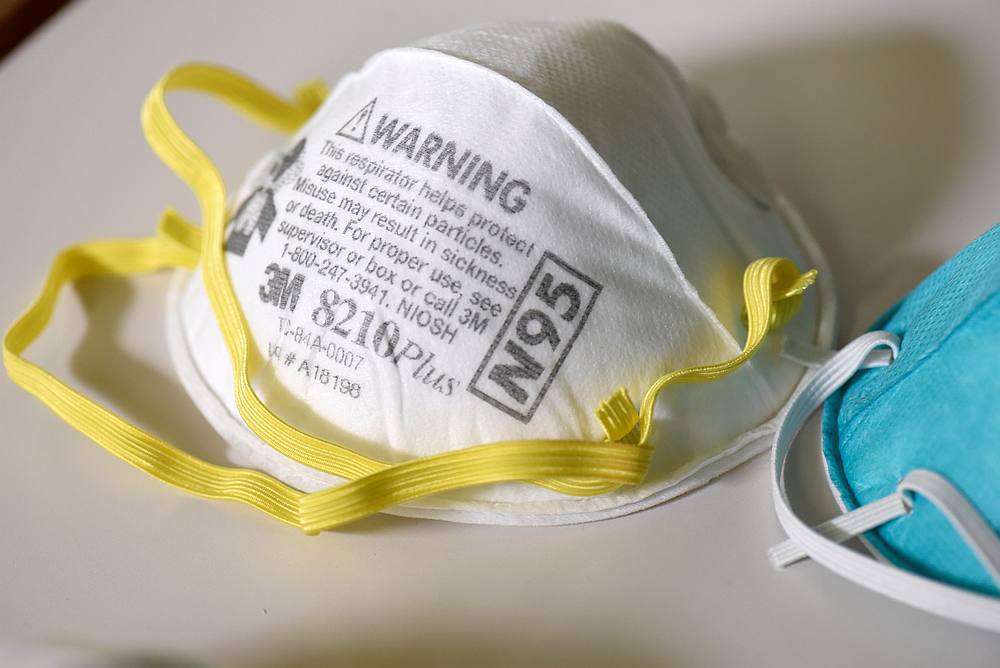Many of the Covid-19 preventive measures that were used to battle the pandemic, from wearing of face masks to quarantine and lockdowns, were protocols pioneered by Dr Wu in his fight against the Manchurian plague more than 100 years ago. — Reuters pic
GEORGE TOWN, April 28 — The Dr Wu Lien-Teh Education Society has submitted a proposal to the Malaysian government to include the life story of Penang-born physician, Dr Wu Lien-Teh, in history textbooks used in national schools in the country.
Society president Koh King Kee said Dr Wu was best known for ending the Manchurian plague in just four months after he took control of the public health situation in China back in 1910.
“This Covid-19 pandemic is a reminder to us that Dr Wu Lien-Teh deserved greater recognition than was afforded him for his contributions in public health and medical research,” he said during the inaugural Dr Wu Lien-Teh International Conference held online today.
He said the society hoped that the Malaysian government would consider including Dr Wu’s story and contributions in the fields of epidemiology and public health in school textbooks as an inspirational story for future generations.
“We have also written to the United Chinese School Committees Association of Malaysia (Dong Zong) to include his contributions in public health in school books used in Chinese independent schools in Malaysia,” he said.
He said the Dr Wu Lien-Teh Education Society, which was formed last year, has undertaken various initiatives to raise awareness on Dr Wu’s many contributions, including organising the first international conference to celebrate the legacy of the epidemiologist.
In the three-hour conference, several speakers including Dr Wu’s great granddaughter, Harvard Medical School’s Emergency Medicine Assoc Prof Dr Shan Woo Liu, and great grandniece, Royal Australian and New Zealand College of Radiologists board director, Dr Yvonne Ho, talked about the legacy left behind by Dr Wu.
Malaysian Health Minister Khairy Jamaludin, in his speech, said many of the Covid-19 preventive measures that were used to battle the pandemic, from wearing of face masks to quarantine and lockdowns, were protocols pioneered by Dr Wu in his fight against the Manchurian plague more than 100 years ago.
“He was the man who developed a multi-layered cloth mask to wrap around the face to stop airborne transmission and we see most countries today making the wearing of face masks mandatory to fight Covid-19,” he said.
According to Malaysia Institute for Medical Research special resource centre head Dr Balvinder Singh Gill, the infectious disease control measures pioneered by Dr Wu back in 1910 included droplet spread, mask wearing, disinfection, population movement restrictions, quarantine measures and isolation and treatment of patients.
“What he did for the Manchurian plague more than 100 years ago are the same interventions that we are doing now for Covid-19, even after so many years, these measures served us well,” he said.
Dr Balvinder also said the pandemic management models that were created for the fourth wave of the pandemic were also based on interventions pioneered by Dr Wu back then.
President of the Chinese Academy of Medical Sciences in China, Prof Dr Wang Chen, who chaired the conference, said Dr Wu had devoted his whole life to the country, public health and medical research.
“Dr Wu deserves the title of pioneer of Chinese modern medicine,” he said.
Dr Wu, who was born in Penang in 1879, studied at Penang Free School before winning the Queen’s Scholarship to study at Emmanuel College in Cambridge at the age of 17 years.
He was the first ethnic Chinese to graduate in medicine from Cambridge and he returned to Malaya in 1903.
Dr Wu joined the Institute for Medical Research in Kuala Lumpur to investigate beriberi, a disease that afflicted Chinese tin miners of that time and after that, he went into private practice back in Penang.
That was when he founded the Anti-Opium Association in Penang.
He travelled to Tianjin, China, where he became the vice director of the Imperial Army College there in 1908.
When a deadly disease broke out in Fujiandian, the Chinese sector of Harbin in northern Manchuria, the Chinese government instructed Dr Wu to tackle the plague.
Within the third day of his arrival, he conducted a postmortem on a patient, the first ever done in China, and identified it as a pneumonic plague.
That was when he instructed population movement to be controlled, plague victims be hospitalised and isolated, their homes disinfected and people were encouraged to wear gauze and cotton masks made by Dr Wu.
These masks were the first medical face mask Dr Wu invented and were the forerunner to the N95 filtering facepiece respirator of today.
On March 1, 1911, just four months after Dr Wu arrived, the last case of the plague was recorded.
The plague killed over 60,000 people in the affected regions in Manchuria.
Due to his contributions in the Manchurian plague, Dr Wu became the first Malaysian to be nominated for the Nobel Prize for physiology or medicine in 1935.
Dr Wu died at the age of 80 in Penang in 1960.


